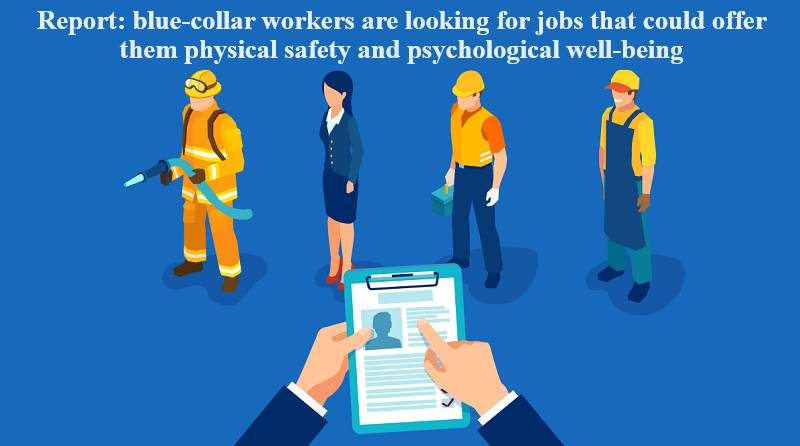
According to research conducted by the global hiring platform Indeed, blue-collar workers are increasingly seeking jobs that offer not only fair pay but also physical safety and psychological well-being.
While fair compensation remains a significant concern for blue-collar job seekers, the Indeed survey revealed that 82 percent of them are looking for positions that allow them to earn enough money to live comfortably, rather than merely covering basic needs.
Currently, only 18 percent of the workforce is capable of achieving such earnings. In contrast, up to 56 percent of blue-collar workers earn just enough to cover their essential expenses. Additionally, 39 percent of Gen Z blue-collar workers struggle to make incomes that cover their basic expenses.
Nirupama VG, the founder and managing director at the recruitment solutions firm AdAstra, commented on the shift in pay structures, stating that many companies, especially in sectors like e-commerce and logistics, are moving toward performance-linked pay structures. These structures offer joining perks and larger incentives tied to individual and team performances, which can manage fixed costs for organizations and promote a meritocratic culture, benefiting both employers and employees.
The report also emphasized that workplace safety is a top priority for 73 percent of job seekers, as it helps prevent accidents and injuries. Reducing physical and mental stress at work is sought after by 49 percent of respondents. Manual labor can subject blue-collar workers to physical stress, resulting in aches, fatigue, and other health issues.
Fostering a supportive, positive work environment is crucial for overall well-being and job satisfaction, particularly given the potential psychological stress associated with high-pressure work conditions, such as those experienced during the COVID-19 pandemic.
Nirupama noted that companies are launching tailored health programs, including special insurance coverage and initiatives to increase public awareness of physical and mental health, to address these issues for blue-collar workers.
For Indian blue-collar workers seeking employment abroad, Aditi Banerjee, Co-Founder and CEO of the international recruitment firm Magic Billion, highlighted the importance of the “Emigration Clearance” initiative facilitated by the offices of Protectors of Emigrants (POE). This initiative verifies employment contracts and the authenticity of foreign employers, integrating necessary insurance coverage to safeguard the rights and well-being of emigrants.
Job security is a top priority for 71 percent of blue-collar job seekers since blue-collar occupations are informal and often lack the same level of job security, benefits, and retirement plans as formal jobs. Economic downturns or business changes make them more susceptible to layoffs or job losses, so job security guarantees that employees will continue to receive pay during times of uncertainty.
Banerjee observed that there is a noticeable shift in the blue-collar job sector, partially influenced by international trends and technological advancements. These trends highlight the skills possessed by the blue-collar workforce, enabling them to participate in international work opportunities. Employers in the UK and Germany are also interested in upskilling blue-collar candidates to improve their integration into the workforce.

Post Your Comments